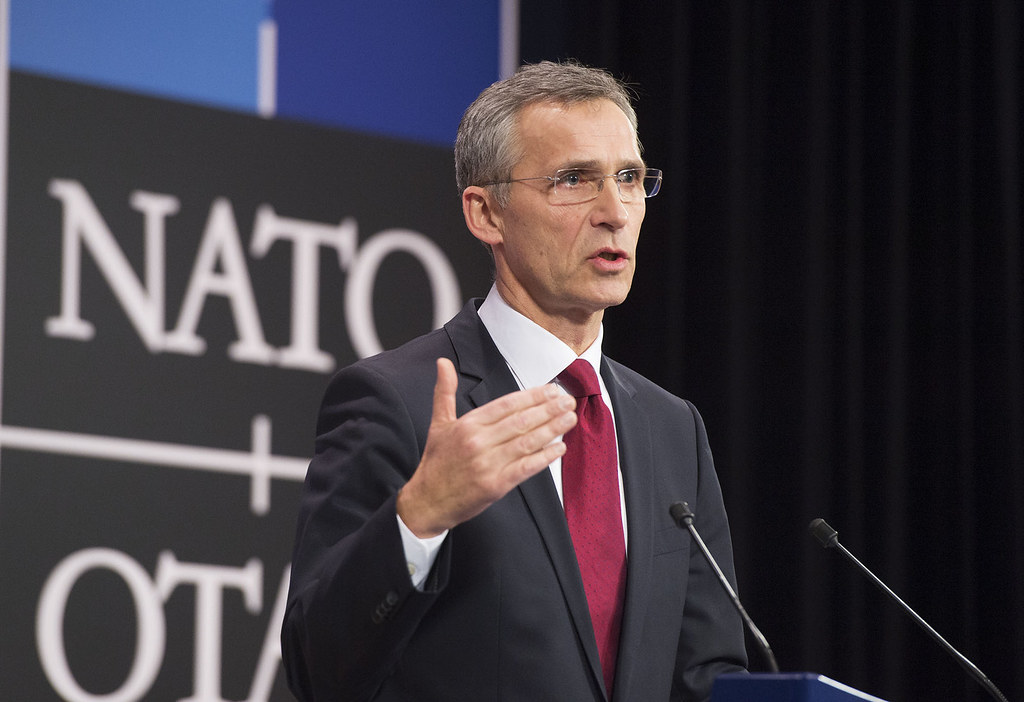KYIV (Parliament Politics Magazine) – What’s the most recent news?
- Things are moving quickly in Ukraine, so here’s a rundown of the most recent developments:
- New explosions have been heard in Kyiv, prompting the mayor to issue a “threatening” warning.
- According to Ukraine, 18,000 machine weapons have been distributed to volunteers.
- Armoured vehicles were seen advancing through the city’s northern regions in videos taken earlier today.
- The EU has imposed sanctions on Vladimir Putin and Sergei Lavrov, Russia’s foreign minister. The BBC understands that it is an asset freeze rather than a travel ban, and that the UK will follow suit.
- NATO has announced the deployment of tens of thousands of additional troops to Eastern Europe.
- As they attempt to exit the nation, Ukrainian men are reportedly being separated from their families. Men between the ages of 18 and 60 who may be conscripted are now prohibited from crossing the border.
- The United Nations says it is stepping up activities to assist civilians who have been displaced by Russia’s invasion. More than 100,000 people are thought to have already left their homes.
More NATO troops will be sent to Eastern Europe
Following Russia’s incursion, NATO officials have announced that extra troops will be deployed to Eastern Europe.
In an unified statement, the 30 leaders said, “No one should be fooled by the Russian government’s barrage of lies,”
NATO has called on Russia to withdraw all of its forces from Ukraine and turn away from the aggressive course it has chosen.
According to the statement, President Putin’s decision to strike Ukraine is a horrible strategic error and Russia will pay a high price, both politically and economically, for years to come.
Nato said it would make whatever deployments required to provide strong and reliable deterrence and defence in eastern Europe.
The measures are and will continue to be preventative and balanced and non-escalatory, adds the statement.
Jens Stoltenberg, the secretary-general of Nato, is currently holding a press conference from the defence alliance’s headquarters in Brussels.
He’s addressing reporters after a meeting of Nato representatives, and he says Russia has “shattered peace in Europe.”
He urges Russia to put a stop to its attacks immediately, withdraw its forces from Ukraine, and re-engage in a peaceful conversation.
He claims that the invasion has resulted in a great deal of suffering and that leaders of the West must “stand ready to do more, even if it means paying a price, since we are in this for the long haul.”
“The world will hold Russia and Belarus accountable for their conduct,” he continues, “Russia as aggressor, Belarus as enabler.”
The Kremlin’s aims are not restricted to Ukraine, Stoltenberg argues, adding that Russia has demanded legally binding agreements to prevent further Nato growth.
Stoltenberg said that parts of the alliance’s rapid response force have been sent to eastern Europe through land, sea, and air.
He claims that the security bloc has “already improved our defence,” and that Canada, US and European countries have already sent hundreds of troops to the region.
According to Stoltenberg, more than 100 fighter jets are now operating in 30 European defence positions, accompanied by more than 120 ships and three strike carrier groups.
He emphasises that the military will protect “every inch of Nato land” and that they will continue to support Ukraine and other nations in the region threatened by Russia, such as Georgia, Moldova, and Bosnia.
It’s worth noting that Nato has already stated that it will not send soldiers to Ukraine, given the country is not a member of the alliance.
“For the first time in a collective defence setting, we are deploying the Nato response force. We’re talking about thousands of troops. We’re talking about air and sea capabilities “He informs reporters about it.
He goes on to say that “a number of allies have already assigned troops and forces to the Nato response force.”
“That is why we are sending the Nato response force, which is a high-readiness force. To avoid any misconception that we are unwilling to defend all allies, Stoltenberg added.






